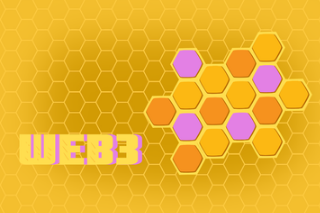The crowdfunding of blockchain projects is an obvious example of the success of parasitic behavior: according to Bloomberg, over 80% of all initial coin offerings (ICO) are scams. Therefore, MimemaOG investigates why crypto investors are still putting their money in projects that will most likely exploit them. The selfish gene theory by Richard Dawkins and Robert Trivers is a helpful tool for understanding the root causes of this phenomenon and to find solutions.
Bee Hives – Role Models for a Decentralized Web3?
Ideally, we could imagine crypto funding to work like a beehive where every individual cooperates for the common weal: here, bees (investors) would tend to their queen (blockchain projects) to ensure the propagation of their individual genes (invested funds). Bees even go so far as to selflessly attack enemies of the hive without caring for their own life. Evolutionary theory explains this seemingly altruistic behavior by the fact that bees are sterile. Therefore, the selfish interest of bees is served best by devoting their energy to the survival of the queen bee, whose female offspring is genetically closer to the individual bee than to the queen herself. This being the case, Richard Dawkins challenges the notion that bees are slaves to their queen. Instead, bees use the queen to further their own genetic interests.

There is a stunning parallel between isolated investors and bees: even though they have a lot of time on their hands, their lone efforts are unfruitful and alone they fail at maximizing the output of their efforts. Bees can’t reproduce on their own, much like the isolated investor doesn’t have a sure way of contributing to a blockchain project that furthers their economic interests and crypto innovation. By pooling their energy under the queen’s umbrella or a launchpad for blockchain projects, their isolated efforts become important pieces of a decentralized ecosystem whose sum is greater than its parts.
How Birds Punish Freeriding
The harmonious cooperation in bees, however, is absent from both the animal kingdom and human societies. Take birds as an example: being unable to reach their own head, birds evolved the behavior of grooming each other to remove parasites. Very soon, a class of scammers evolved among birds that happily received grooming, but did not return this favor when other birds approached them for help. Consequently, scammer genes soon propagated throughout the entire bird population to a point where almost no single bird offered grooming to its peers. A bird population without grooming would have soon died out due to parasitic infestations, had not a new class of birds – the punishers – evolved. Punishers offer grooming to fellow birds, but are able to detect scammers and deny them any grooming in the future. In just a few years, the punishers had liberated their fellow birds, while the scammers got wiped out by parasites, thus ensuring the prosperity of their population ever after.
Unfortunately, crypto crowdfunding is not like a flock of birds that could develop a strategy of punishing scamming manipulations. Anonymity and decentralization – though blessings in many respects – led to a space where scammers thrive. In fact, it can be argued that most meme coins have emerged from small circles of professional scammers and that many investors were the suckers for the same blockchain team more than once.
Mutual Selfishness in Whales and Cleaner Fish
Large denizens of the sea– most notably whales – have found a solution to this dilemma that can work for crypto funding, too. Whales form a symbiosis with cleaner-fish, who remove and eat parasites from their ‘client’s’ mouth. Whenever a whale recognizes the stripy pattern and the dancing displays of a cleaner-fish, it falls into a trance and willingly lets the cleaner-fish carry on its duty. As you may imagine, other fish evolved stripes and dancing skills similar to that of cleaner-fish in order to exploit gullible whales. Once the whale has gone into its expected trance, the scammer – instead of removing a parasite – bites a chunk out of the whale’s fin and beats a hasty retreat. Whales evolved a clever strategy to counter this deception which Robert Trivers calls mutual selfishness. Instead of soliciting the service of random cleaner-fish in the deep, blue sea, whales started visiting their trusted cleaner-fish at a fixed site.
Conclusion: Lessons from the Animal Kingdom for Crypto Crowdfunding
Can we learn from the examples above how to punish crypto scammers and help investors find innovative and lucrative blockchain projects? In order to apply the birds’ punisher strategy to crypto crowdfunding, honest blockchain projects must reveal their identity to investors. Only then can dishonest blockchain teams be excluded from the crypto community. Similarly, the strategy in whales of returning to honest cleaner-fish can be realized by a launchpad that ensures the integrity of blockchain projects before investors buy in.

The Holy Trinity of the MimemaOG launchpad does just that: 1) blockchain projects seeking funding must demonstrate their economic viability with a sound business plan; 2) after being accepted, the team presents their project in a public interview (doxx) with MimemaOG in order to create investor trust; 3) after a project’s presale has been completed on the MimemaOG launchpad, the team receives funds incrementally after the completion of pre-defined milestones. If the team fails to deliver, the remaining funds are returned to its investors. Find out more about MimemaOG below and join us on our journey to the next level of blockchain evolution.
About MimemaOG
A crypto startup founded in August 2021 in Leipzig, Germany. MimemaOG brings liquid democracy and blockchain innovation to the real -world. We envision a true stakeholder economy that launches a socio-economic revolution. If you want to saty up to date, check out the blog and Twitter of MimemaOG.